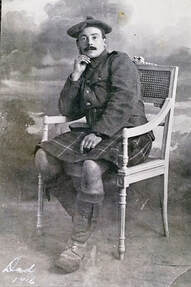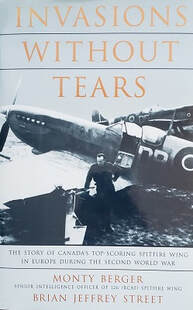Remembrance Day

 In memory of my grandfather, John Cameron, 16th Canadian Scottish, who was wounded in action at Vimy Ridge, 9 April 1917. In memory of my father, Sid Tickner, who served in the RCAF 411 Squadron and was part of the D-Day invasion, 6 June 1944. They are the men in the photographs.
In memory of my grandfather, John Cameron, 16th Canadian Scottish, who was wounded in action at Vimy Ridge, 9 April 1917. In memory of my father, Sid Tickner, who served in the RCAF 411 Squadron and was part of the D-Day invasion, 6 June 1944. They are the men in the photographs. The word remember almost remembers itself as it evolves from language to language over time.
The word remember combines Latin re (again, once more) + memorari = rememorari (to recall, to bring to mind, to remember). In the mid-14th century the word remembren (to keep something or someone in mind, to retain in memory) comes to English, and later the word remember.
The word remembrance has its origins in the Proto-Indo-European (PIE) root (s)mer (to remember).
PIE (s)mer is the root of many words related to remembrance and memory in many ancient languages; e.g., Sanskrit smarati (remembers); Greek merimna (care, thought); Latin memoria (memory, remembrance), memor (mindful, remembering), memorari (to be mindful of); Old Norse Mimir (the name of the giant who guards the Well of Wisdom), Dutch mijmeren (to ponder), Old English murnan (to mourn, remember sorrowfully).
Why has the word remembrance changed so little over time? Memorials and commemorations re-call and re-mind us that there is always something or someone to remember. To remember is to be re-minded or re-mindful of that about which we care and for which we are grateful.
See my article in The Walrus magazine: https://thewalrus.ca/the-war-carved-i...
References:
Online Etymological Dictionary, https://www.etymonline.com/
Published on November 09, 2020 11:28
No comments have been added yet.



